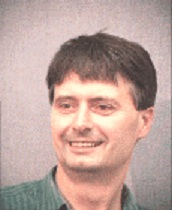Bernard Buxton

Professor Bernard Buxton’s web page is a modest affair, belying the powerhouse of activity that is its author. He has, at the end of 2009 one of the UK’s largest academic portfolios as UCL’s Dean of Engineering, with responsibility for approximately two hundred academic staff, and a financial turnover of £60M p.a. Under his deanship, UCL has moved from being an internationally highly respected Engineering school to being in the very top international league.
He started as a physicist, studying at the Cavendish laboratory in Cambridge, and then at the H H Wills laboratory at the University of Bristol where he completed his PhD with (now Sir) Michael Berry, and worked at both institutions before joining the Long Range Research Laboratory at GEC in 1981 as one of its first staff. While there he authored some very important papers in particular with David Murray on Markov random fields (MRFs), one of the key tools in modern computer vision. While researching diverse areas from development, with colleagues at the Silsoe Research Institute, of an agricultural robot vehicle for the precision spraying of brassica (cabbage) seedlings to energy optimization, from aspects of biological perception—often in collaboration with his wife, Hilary Buxton (who herself rose to hold a Chair at the University of Sussex and be subject chair of COGs, their unique Computing and Cognitive Science Department), to tangling with the trifocal tensor, contributing to bioinformatics (with David Jones) and to multi-classifier fusion and data mining (with Bill Langdon—now back at UCL—and Stephen Barrett of GSK) he was also a keen enthusiast for the promulgation of computer vision, playing key roles in the founding of BMVC, ICCV, and in the founding and early running of ECCV. It is in no small part thanks to Bernard that these conferences represent the pinnacle of our field, and indeed have prestige matching the best journals.
His international collaborations continued through large UK and EU projects, both at GEC and beyond, notable among these being the early UK Alvey project, “Spatio-temporal processing and optical flow for computer vision”, and the EU projects, “DMA”, “VOILA” and “RTGC” (Real-Time Gaze Control). In 1994, Bernard became Professor of Information Processing Systems in the Department of Computer Science at UCL where, with Simon Arridge and the arrival of Mel Slater from QMUL (QMWC as it then was) established and led the Vision, Imaging and Virtual Environments research group, which grew to become the largest in the Department, with over £5M of funded research by the turn of the millennium.
What is perhaps most notable about Bernard, however, is the enthusiasm with which he mentors young researchers. Postgraduate education, in particular of research students, has been one of Bernard’s abiding passions, from his early days as a physicist at both Bristol and Cambridge Universities through to UCL, the latter tempered in particular by his industrial experience and view from the ‘other side’ as it were, at GEC. A particular example close to home is his involvement in establishing, with EPSRC support, the BMVA Summer School and contributing to it for ten years with his unique lectures on image modelling. His founding, with Simon Arridge, of the vision and graphics masters at UCL, now in its 15th year, has contributed hundreds of highly trained and highly motivated alumni to the world computer vision community, further enhancing the international reputation of UK computer vision. Furthermore his PhD students are academics throughout the world, and indeed we are lucky in the UK when we are able to retain some of them, so great is the value of a Buxton education.
As chairman of the British Machine Vision Association, an organization of which he was one of the founding fathers, it therefore gives me very great pleasure to announce that Bernard Buxton is our 2009 Distinguished Fellow.
| Andrew Fitzgibbon |
| BMVA Chairman |